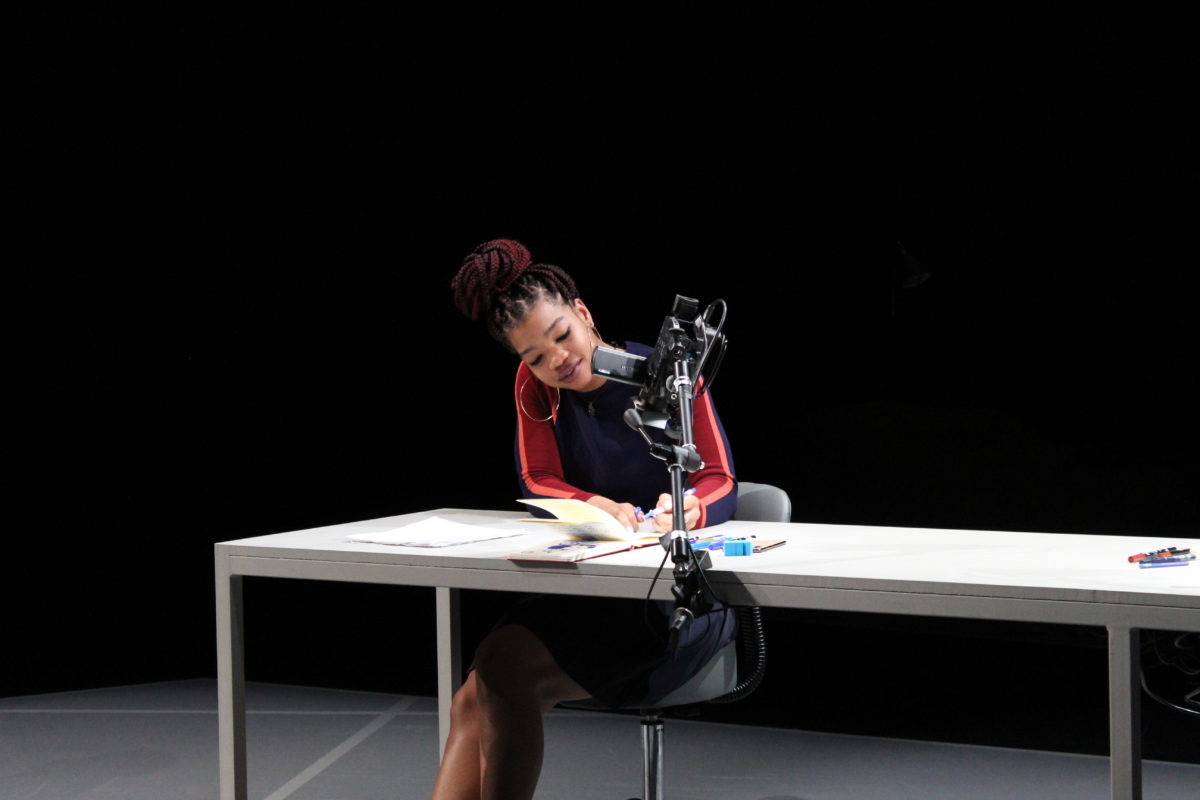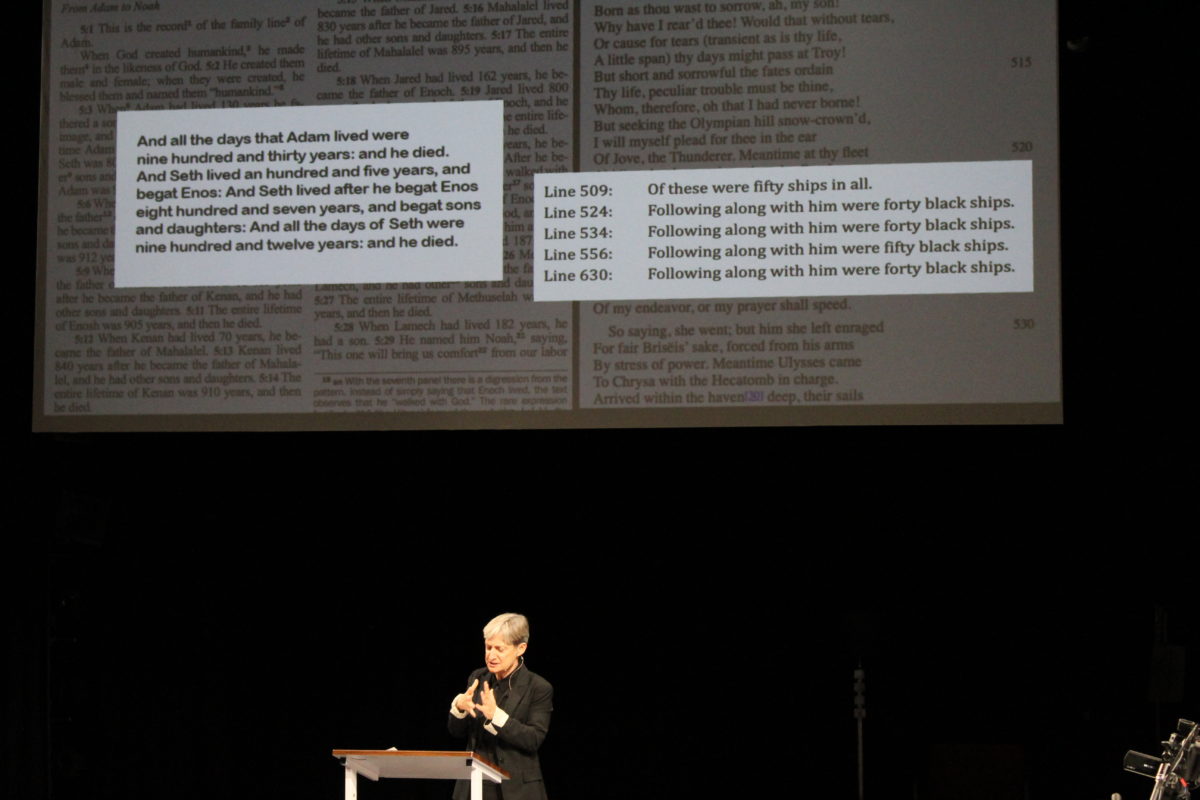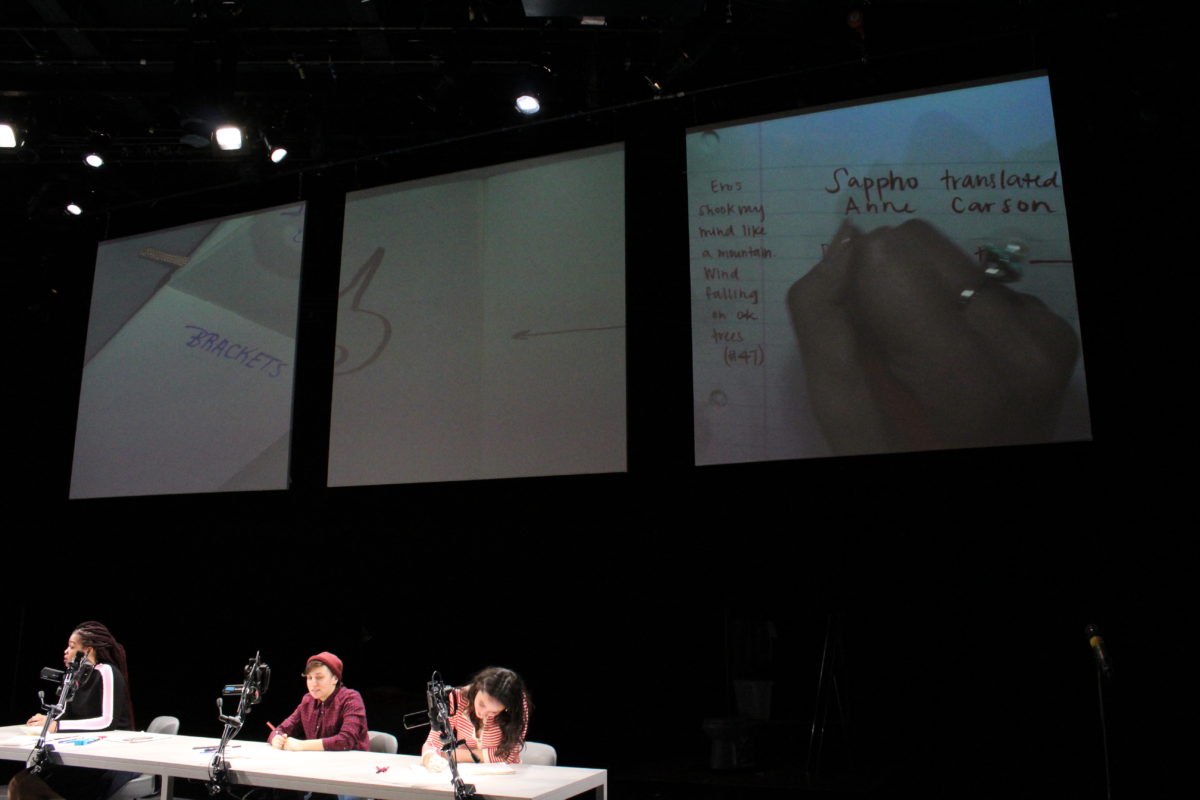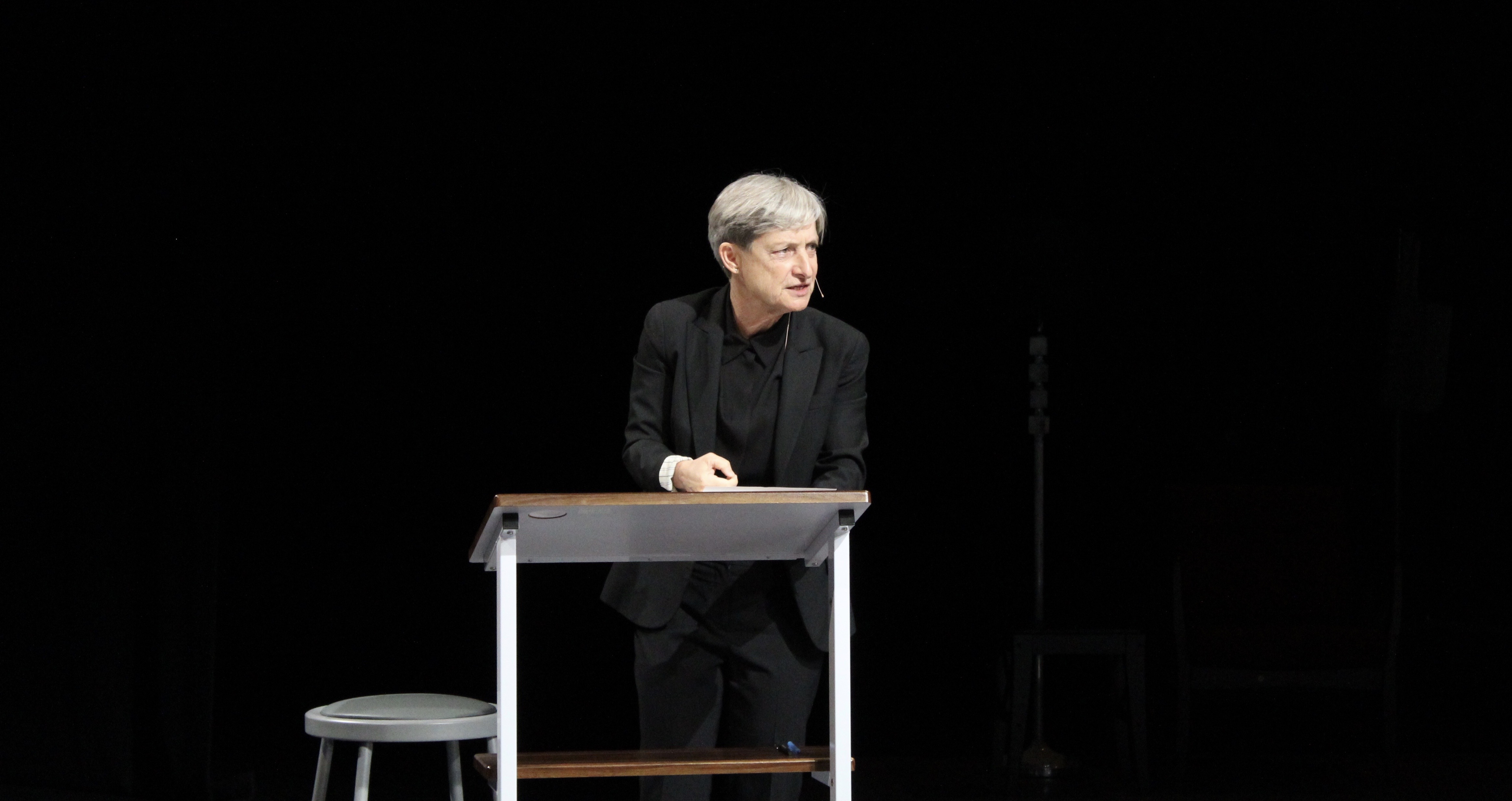The name Carlos Santana is uttered by the professor and the class breaks into a knee-bending, hip-twisting dance. The performers are dressed like college students—beanies, vintage jeans, flannel and floral tops. The dancing and music fade and class is dismissed.
So begins a new show opening at New York Live Arts, written and directed by two Lang College faculty, captures the quiet awkwardness of a fresh semester—the sealed lips and darting eyes of silent students under professorial questioning—and the slow ease that accompanies the unfolding semester. The show focuses on the ways the lives of three main students outside of the classroom impacts what happens inside the classroom.
The show, with the academic title, “Fragments, Lists, and Lacunae,” examines the classroom and how bonds, both with big ideas in the course material and between students, are formed in and out of the academic space. Inspired by an actual class at Lang, the show was written by Alexandra Chasin, an Associate Professor of Literary Studies at Eugene Lang, who currently holds a residency at NYLA. It was directed by Zishan Ugurlu, Lang Associate Professor of Theater and Program Director and Departmental Advisor for Theater, who also holds a residency at NYLA.

As the professor, played by philosopher and gender theorist Judith Butler, gives a lecture, the audience gets a glimpse of the student’s notes as they are projected over them. Looking into students’ thought process in class shows Chasin’s overarching interest in people’s writing beyond literary and academic circles.
As a commentary on academic process and spaces, the lesson plan taught by the professor makes the audience themselves feel like they are inside the lecture hall. As some of the students sit among the audience, you almost find yourself waiting to say “present” during roll-call. Butler, dressed in an all-black suit with a shade darker black button up, bounces back and forth between her podium and the center of class. Carrying her class through an entire semester in this 2-hour performance, Butler shakes and points her hands harshly, while dissecting everything from the Richard Nixon tapes and Toni Morrison to Sappho and Kafka.

Part of what makes the performance so lively is Ugurlu’s directing. With acting credits on 11 productions, and 34 directing credits, Zishan Ugurlu is a cemented professional on and off the stage.
A current resident actress and director at LaMaMa Theater—the nearly 60 year renowned East Village experimental theater venue—Ugurlu’s honed acting and directorial skills carry over into her classroom. Ugurlu teaches with the ideal of self-acceptance, as she described in a The New School Youtube video from 2013: “Nobody wants to reveal themselves, but my job as an acting teacher or a directing teacher is revealing themselves as one of the most important things to learn.” As the characters’ lives play out on stage, Ugurlu’s vision for her own students is shown as five students from Lang were cast to play their day-to-day lives on stage.
While the show was written around a decade ago, the timelessness of the classroom experience makes it feel like it could have been written yesterday. “Zishan has not really changed it. She has brought it to life,” Chasin said.

For “Fragments, Lists, and Lacunae,” Chasin’s ideal takeaway is that audiences and her students explore all parts of the writing process: physically and ideologically.
At a dress rehearsal the day before opening night, an academic setting was inherently present but the focus wasn’t on the lesson plan. The characters reacted genuinely and their notes followed their uncensored priorities, one taking diligent notes while another doodles off the page. However, despite their differences, the essence of the classroom connected these students. They were all trying to survive. The show ends like any class ends, with a sigh of relief and a quick goodbye.







